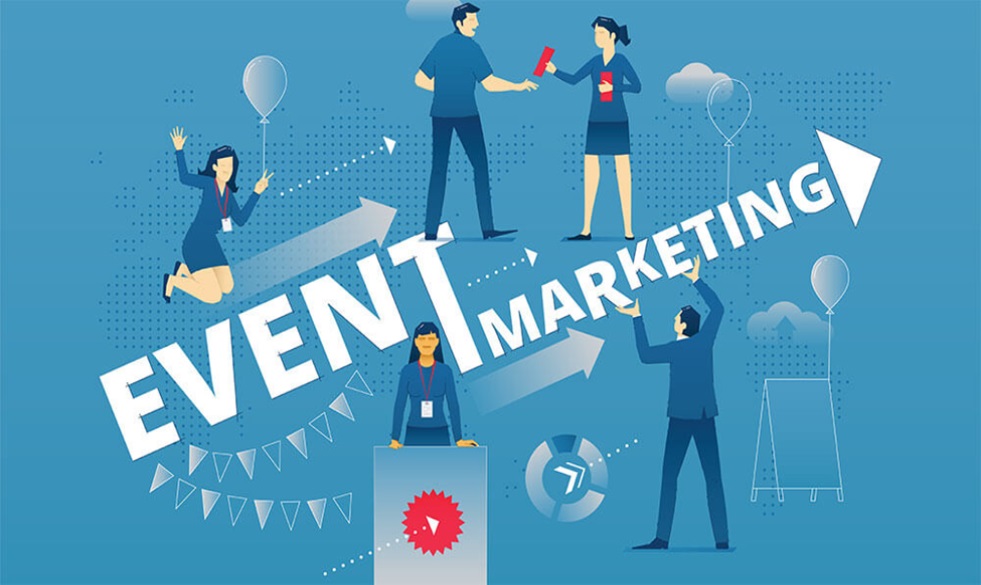As we step into 2024, the strategies and ideas behind successful event marketing continue to evolve, propelled by technological advancements and shifting consumer preferences. To navigate this dynamic landscape effectively, here’s a comprehensive guide to cutting-edge event marketing strategies and innovative ideas for the year 2024.
The Ever-Changing Marketing Landscape
Event marketing strategies undergo continual evolution, adapting to technological advancements, changing consumer behaviors, and market trends. 2024 stands as no exception to this dynamic evolution, witnessing a further transformation in the way events are conceptualized, promoted, and executed. However, amidst these shifts, certain strategies stand the test of time, retaining their relevance and efficacy.
Embracing Hybrid Experiences
In recent years, the concept of hybrid events has gained significant traction and is set to be a cornerstone of event marketing in 2024. Hybrid events seamlessly blend the physical and digital realms, allowing brands to connect with audiences irrespective of their location. Leveraging advanced technology, businesses can offer a cohesive experience for both in-person attendees and virtual participants.
In 2024, expect to see enhanced hybrid event platforms that prioritize interactive features, such as live polling, AI-powered matchmaking for networking, andimmersive augmented reality (AR) or virtual reality (VR) elements. This integration aims to break barriers, enabling remote attendees to engage actively with the event, fostering meaningful connections, and amplifying the overall event experience.
Search Engine Marketing (SEM)
As search engines refine algorithms and user experiences, event marketers are harnessing SEM techniques to enhance visibility and relevance. In this era of voice search, AI-driven algorithms, and refined targeting options, marketers are customizing SEM strategies to capture user intent linked to their events.
Adapting involves not just optimizing keywords and ad placements but embracing the conversational language and long-tail keywords aligning with audience search behaviors. Integrating SEM with social media and content marketing amplifies reach, ensuring events gain significant traction and resonate within the digital sphere.
Personalization Redefined
Personalization continues to be a driving force behind successful marketing campaigns, and its importance in event marketing remains paramount in 2024. However, the focus has shifted from basic customization to hyper-personalization using data-driven insights. Businesses are harnessing attendee data obtained from registration forms, past event interactions, and social media to curate tailored experiences.
In the coming year, the integration of AI-driven algorithms and machine learning will play a pivotal role in understanding attendee preferences. Event marketers will use this data to create bespoke event journeys, delivering personalized content, session recommendations, and networking opportunities. Through targeted communication and curated experiences, attendees will feel more connected and engaged with the event.
Sustainability and Purpose-Driven Events
The global focus on sustainability and social responsibility has significantly influenced consumer behavior and, consequently, event marketing strategies. In 2024, businesses are expected to prioritize hosting purpose-driven events that align with environmental and social causes.
Event organizers are embracing eco-friendly practices by reducing waste, adopting renewable energy sources, and minimizing carbon footprints. Furthermore, brands are integrating philanthropic initiatives and social impact programs within their events, resonating with attendees who seek meaningful experiences that contribute to a greater cause.
Social Media Marketing
Promotion using challenges, campaigns, and sponsored posts stands as a pivotal element within the expansive realm of event marketing. Challenges, when incorporated strategically, serve as an engaging pre-event promotional tactic, enticing potential attendees by encouraging participation through interactive contests or activities.
Leveragingsocial media campaigns tailored specifically for the event amplifies visibility and fosters a sense of anticipation. Integrating sponsored posts across various digital platforms not only broadens reach but also lends credibility through collaboration with relevant influencers or industry leaders, thereby generating buzz and excitement around the upcoming event.
Immersive Brand Experiences
With the evolution of technology, event marketers are exploring innovative ways to create immersive brand experiences. Interactive installations, sensory engagements, and experiential storytelling are becoming prevalent strategies in 2024 to captivate attendees and leave a lasting impression.
Augmented reality (AR) and virtual reality (VR) applications are revolutionizing events by offering immersive experiences. From product demonstrations to virtual venue tours, these technologies are elevating engagement levels, allowing attendees to interact with brands in unprecedented ways.
Affiliate Marketing
In 2024, affiliate marketing transcends traditional link-sharing; it’s about nurturing authentic relationships and leveraging the influencer’s authority to drive engagement. By crafting tailored affiliate programs, event marketers incentivize affiliates to creatively promote events through personalized content, exclusive offers, and behind-the-scenes access. This strategy not only expands reach but also taps into niche audiences, fostering genuine interest and boosting event attendance.
Affiliates are encouraged to showcase their unique perspectives and creativity, tailoring content to resonate with their audience authentically. Whether it’s through engaging blog posts, captivating videos, live streams, or interactive social media content, affiliates leverage their platforms to generate genuine interest and excitement about the event.
Hiring a Marketing Agency
Engaging areputable event marketing agency for event marketing proves to be a strategic decision offering multifaceted benefits and expertise in navigating the complexities of organizing and promoting events. In 2024, the dynamic nature of the marketing landscape demands agility and proficiency in harnessing cutting-edge strategies.
Marketing agencies specializing in events bring a wealth of experience, industry insights, and a network of resources that can significantly amplify the event’s impact. These agencies offer a comprehensive approach, from strategic planning and audience targeting to seamless execution and post-event analysis.
The Power of Influencer Collaboration
Collaborating with influencers continues to be a compelling strategy in event marketing. In 2024, brands are forging partnerships with niche influencers and micro-influencers who have highly engaged, targeted audiences. These collaborations are not limited to mere endorsements but extend to the co-creation of event content, live streams, and exclusive behind-the-scenes access, amplifying reach and credibility.
Conclusion
In conclusion, the landscape of event marketing in 2024 is defined by innovation, technology, and a heightened focus on audience engagement and personalization. By embracing hybrid experiences, harnessing data for personalization, championing sustainability, and collaborating with influencers, businesses can craft compelling event strategies that resonate with their audience and drive meaningful results in the ever-evolving world of marketing.


